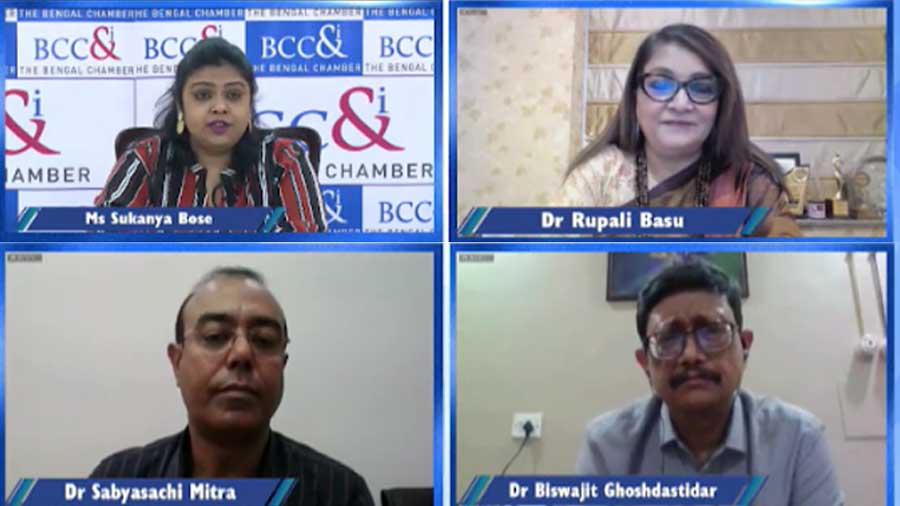Earlier, taking a break was considered to be a professional setback. Today, it is considered integral to playing the long game and maintaining a healthy balance between personal and professional life. The importance of such a pause was highlighted by the Lifestyle Committee of The Bengal Chamber of Commerce and Industry in the third edition of BCC&I Step Forward: A Power Session, presented by Woodlands Multispeciality Hospital and Digital Media Partner My Kolkata.
Experts from the hospital convened virtually on March 24 to discuss, “Why you should take a step back to move forward”.
Dr Rupali Basu, chairperson of BCC&I’s Lifestyle Committee and the managing director and CEO of Woodlands Multispeciality Hospital, moderated the session. The panel comprised Dr Biswajit Ghoshdastidar, director of general medicine and Dr Sabyasachi Mitra, senior consultant of psychiatry.
“The Lifestyle Committee of BCC&I is focussed on advocating good living for everyone in these hard times. This is an interactive, experiential and transformative discussion forum by the committee, where we aim to bring together experts in leadership management and allied fields. We look forward to take meaningful strides to ease professional and personal stresses,” said Sukanya Bose, deputy director of BCC&I.
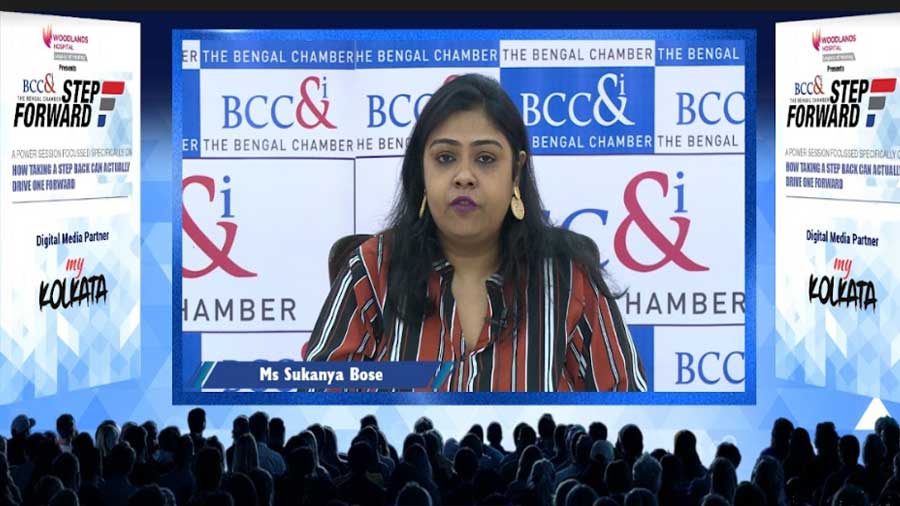
Sukanya Bose, deputy director of BCC&I
Basu proposed a modification to the PDCA cycle (Plan-Do-Check-Act), which is frequently used in management circles to achieve better results. “I want to include S for ‘Stop’ to make this a PDCSA cycle. Stop and analyse all outcomes. While it might seem like you aren’t working if you take some time for yourself, it will be beneficial for the organisation to grow in the long run. If we don’t stop at the right time and continue pushing, things can go wrong,” she said.
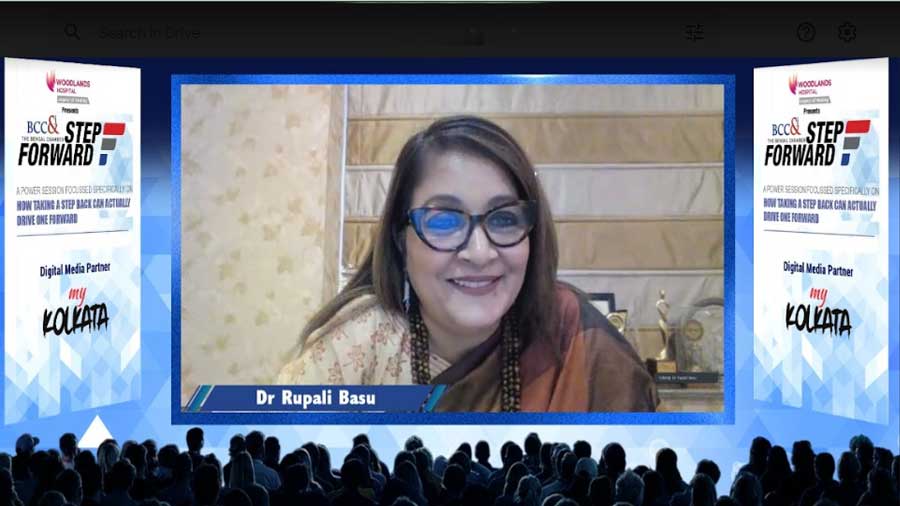
Dr Rupali Basu, chairperson of BCC&I’s Lifestyle Committee and the managing director and CEO of Woodlands Multispeciality Hospital
Ghoshdastidar spoke about how modern have affected our natural routines. “Our body is designed to wake up at sunrise and sleep at sunset. The advent of electricity has given us illumination at night and extended our schedule by six hours,” he said, adding that while the body may initially cope with this, at some point it will give a signal to stop.
He also spoke about the impact of this phenomenon during COVID. “With their current lifestyles, young people are falling prey to early-onset diabetes and obesity, and they might have to pay heavily in their 40s and 50s if they don’t pay attention to their physical and mental health. Given that our country is heavily reliant on the youth, we could be sitting on a time bomb if we aren’t careful now,” he warned.
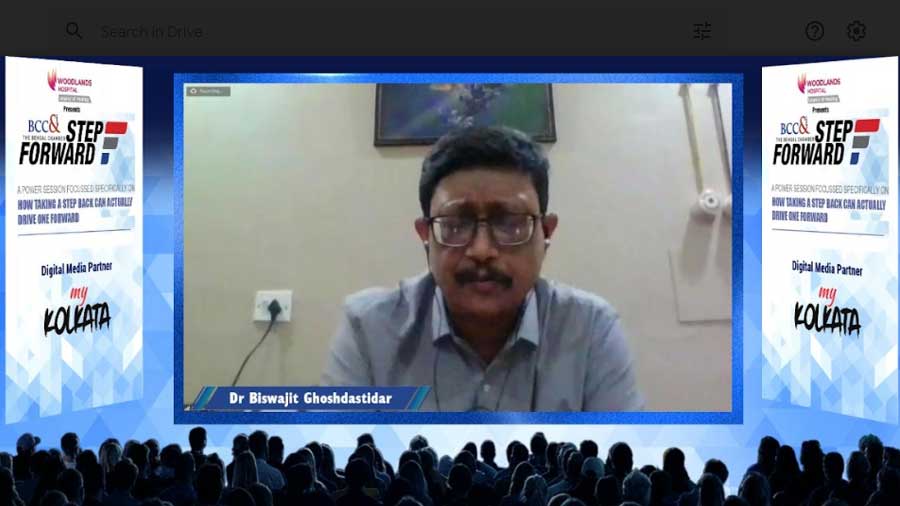
Dr Biswajit Ghoshdastidar, director of general medicine, Woodlands Multispeciality Hospital
Mitra drew a parallel between human beings and machines, asking people to learn from the latter. “If we travel a long distance by road or air, the vehicle needs to stop several times to refuel and cool its engines down before moving ahead. Similarly, if we don’t take time to refuel ourselves during our careers, our bodies will crash before we reach our destination,” he said. He also emphasised on the impact of stress on mental well-being. “Research suggests that happiness is also a learnt process, and if we aspire for unlimited happiness, we could experience burnout,” he said.
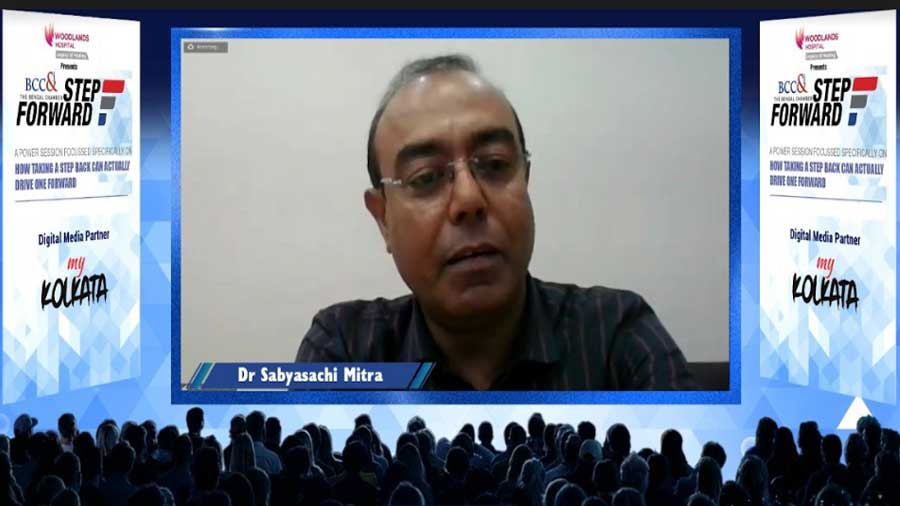
Dr Sabyasachi Mitra, senior consultant of psychiatry, Woodlands Multispeciality Hospital
